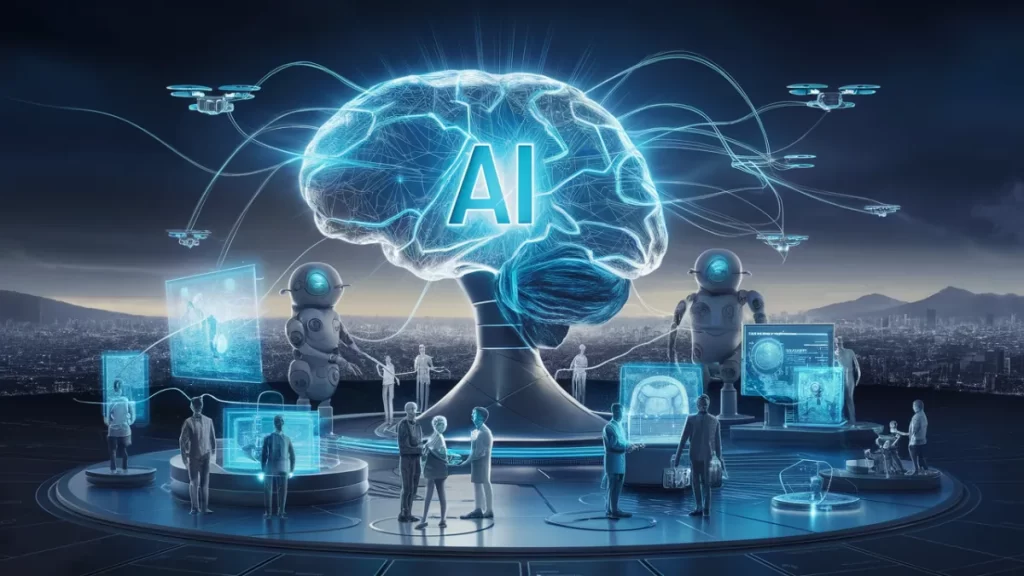AI and the Future of Humanity: A New Era Begins

Artificial Intelligence (AI) is no longer a futuristic concept — it’s here, it’s evolving rapidly, and it’s reshaping life as we know it. From personalized healthcare to real-time translation, autonomous vehicles to predictive policing, AI is now woven into the daily fabric of global society.
But as this powerful technology continues to advance, a critical question echoes louder than ever: *What kind of future is AI creating for humanity — and who gets to decide?*
The Rise of Everyday Intelligence
AI systems today can process more information in a minute than most humans can in a year. They diagnose diseases, write code, compose music, and simulate human conversation with startling accuracy. Generative AI tools like ChatGPT, Midjourney, and Sora are blurring the lines between human and machine creativity.
In cities across the globe, smart infrastructure is optimizing traffic, utilities, and safety. In agriculture, AI-powered drones are managing crops. In education, AI tutors are helping bridge learning gaps. The technology is no longer niche — it’s mainstream.
—
**Ethical Crossroads and Regulation**
Yet, with this innovation comes deep ethical concern.
Who owns the data that feeds AI? Who is held accountable when an algorithm makes a mistake — or reinforces a bias? Can AI replace too many jobs, too quickly? What happens when machines are better at persuasion than humans themselves?
Governments are beginning to respond. In a landmark move, the European Union passed the **AI Regulation Act** this month — a sweeping law designed to ensure AI is transparent, traceable, and fair. Other nations are expected to follow suit, but global coordination remains a challenge.
Without consistent guardrails, experts warn of AI systems being used for mass surveillance, misinformation, and social manipulation.
—
**The Human Element: Can We Keep Up?**
Perhaps the biggest question isn’t about AI’s intelligence — but ours.
Can society adapt fast enough to understand, manage, and ethically guide the technology it’s creating? Will AI deepen divides between those who have access and those who don’t? And as machines grow more capable, how do we preserve what’s *uniquely human* — empathy, creativity, intuition, and morality?
Some believe AI will eventually surpass human intelligence, ushering in a “singularity” — a point of no return where machines lead evolution. Others see AI as an extension of human potential — a tool that, if governed wisely, could help us cure diseases, solve climate change, and elevate the quality of life for all.
—
**The Future Is Now**
What’s clear is that we’re standing at a major turning point. The choices we make today — in how we build, regulate, and interact with AI — will define the next century.
AI is not just about machines learning to think. It’s about **us** deciding what kind of world we want to live in, and making sure technology aligns with our values, not just our ambitions.
The future of humanity is not in the hands of robots. It’s still — for now — in ours.



